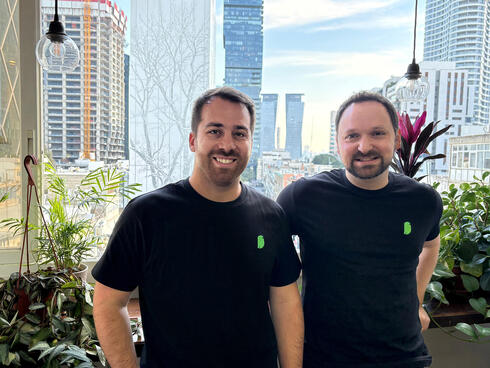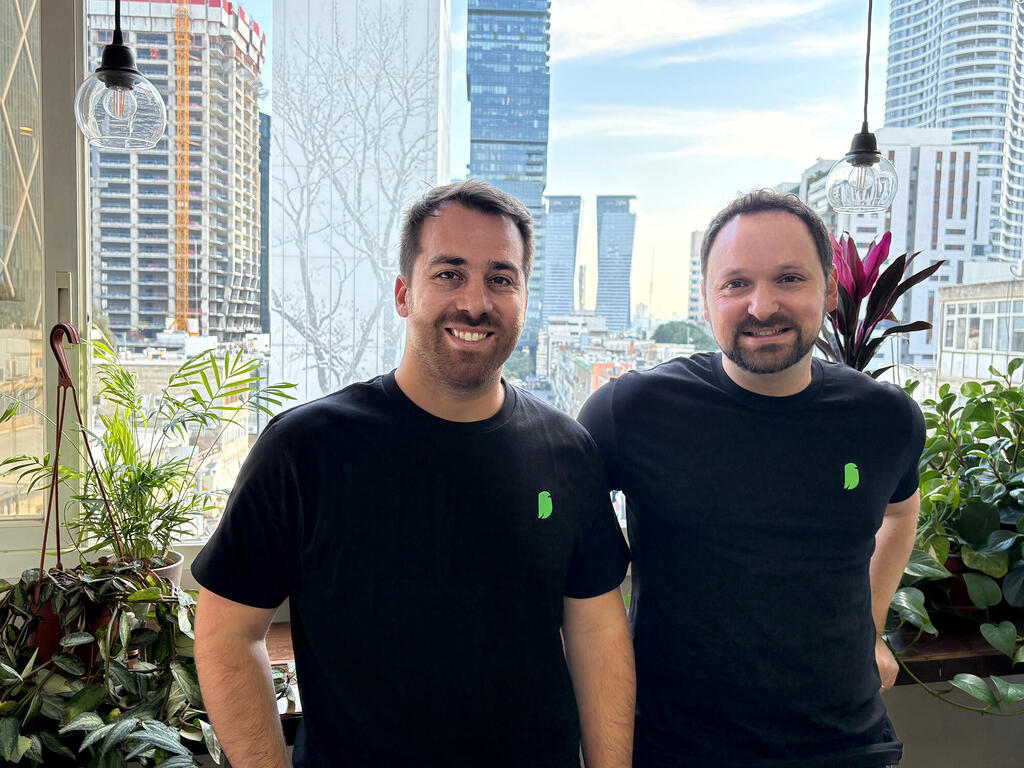
From Palo Alto exit to personal loss: Guy Eisenkot's journey to launching Baz
The CEO of the new AI startup, Baz, channels grief into tech innovation following the death of his brother in Gaza.
A year after his brother Gal was killed in Gaza, Guy Eisenkot is revealing his new startup for the first time. Eisenkot (36) is the eldest son of former Chief of Staff and MK Gadi Eisenkot, and a serial entrepreneur who has already sold the startup Bridgecrew to cyber giant Palo Alto Networks for $200 million four years ago.
Calcalist has learned that the new startup, called Baz, is now coming out of a year of stealth activity after already raising $8 million in a Seed round. It is now launching its product that is supposed to prevent errors in artificial intelligence-based programming.
The startup was officially founded in August 2023, but before Eisenkot and co-founder Nimrod Kor (35) could make any headway, the war broke out and both were drafted into long-term reserve service in the 8200 intelligence unit. Eisenkot continued to serve in the reserves until December 7, when his younger brother Gal (25) was killed in action in the northern Gaza Strip, and Kor continued for several months afterward. "The company actually started when I got up from shiva (seven days of mourning)," Eisenkot now says in a conversation with Calcalist, "There were no thoughts of stopping, on the contrary, I had to channel my energy, and the option of withdrawing was not on the table. It's also a kind of therapy, as soon as you get out of the shock, come back to life and realize that building a company in Israel, paying salaries to employees here, is victory."
Baz currently employs 13 people in offices in Tel Aviv, with Eisenkot serving as CEO and Kor as CTO. The two served together at 8200 and Kor was also recruited as the third employee at Bridgecrew. After a year of initial development, Eisenkot and Kor are now launching Baz's solution, which is supposed to assist in the verification process of software in an era of automatic code writing by artificial intelligence co-pilots. The software checks, among other things, that the new code does not disrupt the operation of existing applications.
The name Baz comes from the world of programming, where it is customary to insert the expressions foo bar baz in places where future code that has not yet been written is supposed to be inserted. According to Eisenkot, the new platform replaces manual code merge tests with an automated process and shortens the analysis time of all points sensitive to disruptions by 40%. The company doesn’t have any customers yet, but only 11 design partners.
The Seed round was led by Battery Ventures and Boldstart Ventures, which previously invested in Bridgecrew. Vermillion, Secret Chord Ventures, and Fusion also participated in the fundraising. The partner at Battery who led the fundraising is Barak Schoster, who founded Bridgecrew with Eisenkot.
Bridgecrew is considered one of the most successful and fastest exits in Israel, as it was founded in 2019 by Eisenkot, Schoster, and Idan Tendler and was sold just two years later to Palo Alto after raising only $18 million. Tendler, who was the company's CEO, currently serves as SVP Appsec at Palo Alto and founded the organization Place-IL to increase employee diversity in the high-tech industry. Before that, the three worked together at the cybersecurity startup Fortscale, which was founded and managed by Tendler and sold to the American security company RSA for $20 million in 2018.
Eizenkot, who was Bridgecrew's VP of Product, was appointed after the exit to be responsible for application security at Palo Alto. During this period, the department grew from 20 to 120 employees and generated sales of several tens of millions of dollars. During his tenure, he also led the acquisition of the Israeli startup Cider for $300 million in 2022. Eisenkot left Palo Alto in August 2023 to found Baz.
The past week has been particularly turbulent in the world of artificial intelligence, with the rise of Chinese DeepSeek to the top of the Apple App Store and the fear of undermining American hegemony in the field. Eisenkot, who knows the field intimately, thinks this is a dramatic wake-up call for Israeli high-tech. "Israel is missing out. Every time I'm in the U.S., I see the new energies there around AI. In California, there's madness on the streets, talent is flowing back to the giant companies, in bars and offices there are meetups and brainstorming sessions on these issues, and in Israel there's a feeling that we've been left behind," said Eisenkot. "Until now, everyone has been comfortable living in the paradigm that this is an American event and that the big money is going there. That gave the Israelis the excuse, but I don't accept it. We have the talent, the international companies, the experienced entrepreneurs, and there are many Israelis and former Israelis who are leading the field. I have a strong feeling that we're behind in this race for no real reason. Now the Chinese have taught us that there are no excuses.
"It may be a black swan on a global macro level, but in Israel there is an opportunity here for entrepreneurs to challenge existing paradigms, and suddenly new doors are opening. We need to stop whining and remember that although we were not the first with cloud solutions, we were the first in the world in cybersecurity for the cloud," he concluded.















